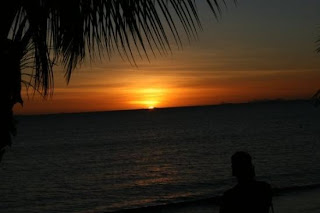It was
hopeless. Fatigue had forced my eyes shut. But my body would not shut down. I
could not fall asleep. My legs felt possessed, crawling with invisible insects,
itchy, irritated and impossible to ignore. It was like a low-voltage current
was being channeled through my thighs and calves. I changed positions, once,
twice, a dozen times but it didn't seem to help. Sitting up and swinging my
restless legs over the edge of the bed, I obeyed the irresistible urge to move.
Somewhere, anywhere, I had to escape the creeping discomfort.
A cruel torturer
had conspired to defeat my nightly wind down regime that permitted me to
surrender to a sweet, if short, slumber. I always started by lying on my back,
arms by my side, focusing exclusively on just relaxing my limbs, willing them
to cease their constant shaking. Within minutes they would submit, as if
recognizing my need for respite, and the sleep that followed. Typically, the
enemy of sleep would be in insomnia waking me up hours before dawn. Now a new
insurgent had interceded. Having conquered my day-long tremors shortly after
crawling into bed I was enjoying what proved to be a false sense of control
when Restless Leg Syndrome (RLS) slipped under the covers at the foot of the
bed to add a new dimension to my already sleep-challenged nights.
RLS is a
strange problem of uncertain origin. For me, it is probably linked to Parkinson's
disease (or whatever PD is linked to). But why had it chosen to join my unhappy
collage of symptoms at this point in time? I felt particularly vulnerable to
this new enemy. I felt overwhelmed, tired, stressed, and anxious about the days
ahead. I slipped quietly out of bed and stumbled
from room to room in my dark house, trying to avoid waking my family as I
walked off the strange sensations depriving me of sleep. As I did, half-formed
thoughts and metaphors merged in a single conclusion: I had been restless my
whole life; a nebulous, inquisitive
spirit that has possessed me and prodded me to search for more.
I
recognized my recent 10 week circumnavigation of the globe was really just an
extension of this restlessness. I remembered as a young boy running to explore
any new place my family visited, investigating what made something tick (even
if after disassembly it never "ticked" again) and hiking "just a
little farther" check out what was around the next bend or over the next
hill. Curiously, as a teenager I had no interest in experimenting with drugs. I
found reality more interesting than psychedelics. However, I thought nothing of
starting a summer weekend adventure by standing alone, with my thumb extended,
on the shoulder of the road at the edge of my hometown, Vernon, without any
destination in mind. The initial question from the person who picked me up was
always the same. "Where are you headed?" The response to my answer, "No place in
particular" was always… interesting. Of course, that was before the evils of
hitchhiking (and hitchhikers) were fully understood. For the most part I was given rides by
friendly folk; lonely men anxious to have someone to talk to on a long drive
when radio signals were few and far between, or young couples just sympathetic
to a young person needing a ride. There were no particularly frightening
incidents despite a drunk driver or two, being propositioned once, and
sometimes traveling a bit further than anticipated, making it a challenge to
get back home by Sunday evening.
Even
today I find myself attracted to the items on the menu that I've never eaten
before, the potential of a back road that I have never driven, and the intriguing
stories of a stranger. Of course, there is danger in being curious. Risk must
be evaluated where possible. The imagination, left unchecked, can loose the
mind from its moorings and leave morality marooned on some distant island. But
for me, cautious curiosity leads to fullness of life.
Despite
the discomfort of the RLS, I realized that there was a logic to its
intrusiveness at this point in time. While returning from a trip around the
world gave me a sense of accomplishment, it also left me feeling let down; reengaged
in what might be characterized as an unremarkable life with the recent feeling of
exhilaration quickly disappearing. My craving for adventure must be fed, but it
must also be constrained lest it become an addiction to irresponsibility. It is
the reality spoken of in the Pete Seeger hit, "To Everything There Is a
Season" (a.k.a. "Turn, Turn, Turn") where he quotes from the wisdom
of Solomon.
1.
To everything there is a
season, and a time to every purpose under the heaven:
2.
A time to be born, and a
time to die; a time to plant, a time to reap that which is planted;
3.
A time to kill, and a
time to heal; a time to break down, and a time to build up;
4.
A time to weep, and a
time to laugh; a time to mourn, and a time to dance;
5.
A time to cast away
stones, and a time to gather stones together; a time to embrace, and a time to
refrain from embracing;
6.
A time to get, and a
time to lose; a time to keep, and a time to cast away;
7.
A time to rend, and a
time to sew; a time to keep silence, and a time to speak;
8.
A time to love, and a
time to hate; a time of war, and a time of peace.
.jpg)











.jpg)


.jpg)









.jpg)













